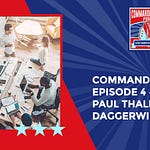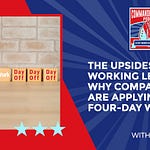Everyone has the right to health. No matter what race, color, gender, or status, everyone deserves to be treated with high quality care and dignity. This is what Errol Pierre is in pursuit of. Despite the headway the health industry has come when it comes to providing access, it is still undeniably far from fully reaching those who need the care the most. The same thing happens in opening opportunities for people of color, women, and those in the LGBTQ+ community in the corporate world. In this episode, Errol joins Yuri Kruman to share with us his journey of making sure health equity and diversity in the corporate environment are achieved. Errol is a healthcare executive, health equity expert, and the author of The Way Up. Follow along to this great conversation to gain insights on what the different industries still need to do so it helps everybody without discrimination.
Our conversation touched upon many interesting topics, including:
· What inspired Errol to write The Way Up
· The challenges of climbing the corporate mountain as a professional of color
· The cost of code-switching
· What is performative allyship and how to avoid it
· Why hiring is not just the HR’s job but the whole company as well
· The importance of choosing your passion
· The value of mentorship and coaching
Errol Pierre, Healthcare Executive
Health Equity Expert And Author Of "The Way Up"
If you guys have been tuning in for a few years, you know we speak with some fascinating people. We’re very curious about their stories. We’ve talked to a lot of tech CEOs and all kinds of other leaders in different industries. One of the most interesting things we can do is switch up, either background or story, something that we may not have encountered typically. One of the reasons why I’m excited to speak to our guest, Errol Pierre, who’s a healthcare executive is because he has a very interesting and unique story, which deserves to be known by everybody. Errol, welcome to the show.
Thank you, Yuri, for having me. It’s a pleasure to be here.
It’s great to have you. Tell us a bit about yourself, your work, and what wakes you up in the morning.
I’m born and raised in New York. I lived in the Bronx for over seventeen years. I live in Brooklyn now and ended up in healthcare accidentally. It’s an interesting story, but now, I’m in pursuit of health equity. Health equity is making sure that everyone, no matter their race, creed, or color gets access to high-quality care that treats them with dignity. I’m a healthcare executive. I worked at the largest for-profit plan and largest nonprofit plan in New York. I’m also a college professor. I teach Health Economics and a new author. I wrote a book called The Way Up: Climbing the Corporate Mountain as a Professional of Color.
Congrats. It’s a great book. From what I’ve read, it’s phenomenal. We’re going to reference it a lot in our conversation, but the most important thing is maybe you can give us some background about your family and how did you come to see the world the way you do.
I am so privileged and humbled to have two amazing parents that came from Haiti. Haiti is one of the poorest countries in the Western hemisphere. They live on $1 a day or less than that. They have been victimized by bad leadership, tyranny, natural disasters, hurricanes, and earthquakes. Luckily, my dad had the fortitude, insight, and innovation to leave a farm in Gonaives, Haiti, and end up on the shores of America.
He came to America in 1969. He was fleeting a very bad despotic regime, Papa doc, who was killing people. He made it out because of perseverance and grit, I was lucky enough to be born in America and there’s no greater privilege than being born on the shores of America. It’s because of all that he did. I grew up in that vein of seeing my dad look at America as an immigrant. Back then, it wasn’t just that he was Black, it was also that he was an immigrant. It was a double hit of trying to find his way into society.
As a child, I didn’t know what it was, but I could see the doors getting closed on him, what an accent means, and what it means to be Black in America. They never said it out loud, but it taught me these unsaid lessons of grit, determination, perseverance, and humbleness. That’s my come-up story of watching my parents coming to America, living in an apartment, and being able to struggle. My dad worked five different menial jobs like washing dishes and cleaning offices. I witnessed this and then it turned into values that I have now on working hard and trying to make a difference.
You have to acknowledge your parents. For me, in many regards, it’s quite similar. I came with my mom when I was nine from Soviet Russia. She’s a scientist. I remember her twenty-key job at the university. She faced sexism and then all kinds of isms there. I also had some very similar memories like the accent thing which was used against her. She doesn’t understand office politics. She’s a scientist and just wants to do the work. I can appreciate certainly it in that vein. You mentioned in the book that you remember your father waking up at 4:00 every morning to go to work. It’s incredibly honorable. You can thank them, but you can never thank them fully.
The beautiful thing about watching what he went through is, whenever I face problems, I know my problems are first-world problems. It puts everything into perspective. That’s very important for how you view the world. It’s having a worldly view to know that people are going through things that are way worse than I am. My worst day is sometimes better than someone’s best day. That perspective changes your outlook on how you face things in the world.
Right on the cover of the book, you call it a corporate mountain. Why is that as opposed to a ladder? If you could help us, explain that.
This was an interesting piece. As a child, I had this big understanding that I had to work hard and get educated. My parents were so focused on education. I went to school and got an entry-level job which is a unique story in itself. I’m in the workplace and I’m realizing that it’s not hard work. I went into Corporate America saying, “It’s a corporate ladder.” Each step of a ladder is equally distanced from each other and you go up. It seems fairly easy, but what I experienced was getting a title is not about hard work, doing a very good job, or being the smartest in the room. There was this whole concept of you need to know the right people. The right people needed to know you.
People knew the job before it was even posted online. How do you even compete when the job is already given away before they posted online? We had to say the right things. I was sometimes the few Black people in the room so I didn’t have much in common with the people I was working with. How do I build a relationship with them? I’d walk into a room and they would all be huddled together talking about things. I didn’t even know how to get myself into it.
I wish I read this book before when I was younger to know that if you’re not the dominant population, it is a mountain. By that, I mean you have to have preparation. You have to get ready and have the tools for a long journey. You can’t assume hard work is going to get you there. Sometimes you have to double back. People are always thinking about the next step. Sometimes you have to make lateral moves.
I made a lateral move in my career. I was a director, but I took the same paying job and moved over, but the reason why I moved over was the ceiling was higher. I was in a place where I had a low ceiling. I said, “Let me move over so I have a higher ceiling.” Those are concepts that you don’t get told early in your career. My intent was to share that it is a mountain and then prepare as such. Don’t be surprised when you get a no or when the job is already given to somebody. Don’t be surprised that people who are average that don’t work as hard are getting promotions because they’re on the ladder and you’re in a mountain. It’s prepping people for how Corporate America’s going to be.
As part of this conversation, it’s time to mention this context switching. Let’s say I’m the average listener and I might not be a person of color or a woman. I may not aware of what it’s like to look different, sound different, be from a different background, and have different interests from the majority of people in a boardroom. I’m playing golf after work. Context switching is this formulation that crops up here and there, but it’s very important for people that have never experienced it physically and mentally to understand what that looks like in the working day.
How is that you go from waking up at home and you’re with someone who gets you, maybe from your background? You get into work and you’re like, “I have to look a certain way and wear a certain suit?” Maybe it’s not financial services, but still, in New York, there’s a certain way of dressing. They just can’t wrap their mind around it.
That’s a great point you’re bringing up. One is you have to be very intentional about whom you’re going to be when you show up. I have lots of mentees that I help and, in the book, I did interviews with eleven executives of color to ask them their thoughts. What I’ve learned is sometimes you take what makes you different and think of it as a negative so you keep it a secret. You try to change yourself to fit in. Every time you’re dimming your light to try to fit into someone else’s light, you’re eroding everything that makes you special. To your question, what I like to do is educate people.
For example, they say, “What are you guys talking about?” “I’m talking about what we did this weekend. I was on my boat. I went skiing.” They say, “What did you do, Errol?” I was like, “I went to a Haitian concert.” “What’s that?” “Their music is Compas music. It’s a very awesome and fast beat. It’s almost like meringue, but it’s a different sound. I was at a concert listening to one of their most popular artists that’s in America.”
Rather than keeping a secret saying, “I don’t want to tell them something they don’t know. They’ll look down on me and think it’s weird,” I use it as a way to show my uniqueness. There are a lot of people who have differences that hide their uniqueness as opposed to using it as a strength. The conversation opens up and now they all have questions. They’re like, “I want to hear this Haitian music.” I was like, “I’ll send you a record so you can check it out.” Now, you’ve totally changed the dynamic of the conversation.
What I used to do was I’d hear someone’s on their boat and someone’s skiing, and they said, “Errol, what did you do?” I was like, “Nothing much. I was doing some errands.” That’s me dimming my light as opposed to showing my uniqueness. I see it happen all the time. It’s very important to be intentional about showing your uniqueness because people are learning more about you and get a little bit vulnerable, and then people see how special you are. It’s very important.
I’m glad you brought that up. In other contexts, this might be called the Law of Attraction, meaning to be fully yourself so that the people you attract are also fully themselves. You don’t spend a lot of your time guessing, wondering, and hiding. In Russian, what we say is don’t be the one that walks around in a cello case. It’s very important.
There’s a term called code-switching. I talk about it in the book. It’s a term very much so when people are changing themselves for the purpose of moving up. There’s a cost to code-switching because when you do move up and you become the executive, they don’t even know who you are. Now, you’re like, “I have to pretend to be this person.” You’ll have a dual life.
In the book, I talk about W.E.B. Du Bois who talks about double consciousness. The worst thing ever is to have a double life. To be one thing at your workplace and then another thing at home. You basically separate yourself. You underperform too because you’re using all this energy to pretend to be someone else rather than doing your job.
In my coaching, I use the term Chinese wall between the outcomes that you seek at work and the outcomes that you seek in your personal life. If there’s that Chinese wall, you can’t hybridize the two. You can’t bring the best self to either. It’s not like, “I’m not there yet.” You’re wasting a massive amount of energy, time, and resources. Whatever your flag is, God bless, fly it. Get it out.
If the company doesn’t like it, that’s not a reflection of you. That is a reflection of them. You belong to a different company. Another thing that happens to a lot of people is they try to fit in, but they can’t fit in, and they keep thinking it’s about them. That’s about the company. Their culture is toxic if they’re not inclusive. It might be time to leave too. It doesn’t mean something’s wrong with you.
That’s a great point. The Law of Attraction works in both directions. That’s a good time to bring up these two sides of the coin. In the GI or GIB space, there’s a lot of fluff and acronyms. There’s not always that much, but some money is thrown at a problem. It’s like, “Let’s hire a trainer. Let’s hire a consultant.” What are you changing? You’re just checking boxes or pretending to form some employee resource groups, and there’s no budget. There’s very much room for both, whether it’s executives or somebody earlier in their career to do things on their own and empower themselves and understand how this corporate mountain or ladder works. Not just, “Let’s check boxes so that our brand is not sued by someone.” Let’s do things thoughtfully. Let’s not do it because GI has a good ROI.
I would love to discuss both sides. On the one hand, we started with a self-empowering piece. As the head of HR and someone who’s been in the space for a while, I’d love to hear your pointed recommendations. When you’re in there, especially at the top levels of large corporations, you know how to bring in sausage. What does sausages mean? It is not pretty. Maybe if you can give us a bit of a view into that, what does that conversation look like formally, officially, unofficially, and then where does that conversation fall short in practice?
There’s this concept called Performative Allyship. As you said, it’s checking the boxes. This happened in America after the murder of George Floyd. You could open a newspaper and see these pronunciations from all these corporations. It’s like, “We’re going to invest $100 million into XYZ. We’re going to hire Black and Brown people. We’re going to fix the masculine for women,” and all these pronouncements, and then a few years later, if you pull up their board of directors and executive teams, nothing changed.
Performative allyship is pronouncements of stuff and nothing happens. Research shows that the worst thing that happens is you do bias training in a company. Now you’re telling the employees something is wrong with them. Why is something wrong with them? This group of employees is being subjugated versus this group of employees. You’re pinning employees against each other and they have to go through this training at work, which is dry and you forget about it. A few years from now, you forget what the training was and what the terms are. All you remember was, “I had wasted the time doing this training that was telling me that I was a bad person.” It doesn’t move the needle anywhere.
What I’ve found to be successful is very simple tools. Things like if you have an application set, so you get a group of resumes that you’re going to select for a job, and that pool of candidates is not diverse, it is 100% likelihood you will not find a diverse candidate. Before you even start the interview process, ensure the pool is diverse. Diversity is interesting. There was a study by Harvard Business Review. If you have one woman in a pool of candidates, 100% of the time they don’t get hired. If you have two women, the likelihood that you hire them goes up to 40% or 50% in the pool. The same thing happens to people of color and LGBTQ.
The intent is I don’t need bias training. I need to say, “We are committed to having diversity in hiring that are meeting the objectives and that are qualified.” If we’re looking at a pool of candidates, the pool of candidates should match the demographics of the country. That’s not that hard. If you have 5 candidates and 2 of them will be of an underrepresentation class, you don’t stop there. Now, the people that are doing the interview also have to be diverse. You have now a pool of candidates and a group of people doing the interview that’s diverse. Even if you hire a cisgender White man, if you do it through that process, that’s the best candidate that’s supposed to get there. No qualms.
If you keep hiring a cisgender White man and the pool is not diverse and the people who are doing the interviews aren’t diverse, then you have bias and you’re trying to mitigate the bias. It doesn’t mean you can’t hire White men. What it means is you want to make sure that you have a diverse pool and that the people doing the interview of the candidates are diverse. Strong likelihood that you’re going to start seeing diverse candidates. The way of it is, what you’re trying to do is diversify your bias. Everyone has bias. I’m a Black man and I have bias. You’re saying, “I want a diversity of bias,” so that my bias is offset by your bias, and everyone gets a fair shot. That’s the intent of the public presence. That’s why I see it in practice and it works.
The other thing to do is bonuses and money. Ironically, if a company tries to fix something, Netflix is like, “We need more streamers,” or Facebook is like, “We need more people,” whatever the company is, they make bonuses. They have a bonus program to hit their numbers. For some strange reason, with DE&I, executive leadership teams have been reluctant to add bonuses to it. This is not for quotas because I would rather miss the measure if I can’t find people who are adequate for the job, but there are people that are adequate for the job that can get these roles, and all you have to do is put a bonus behind it.
There have been some companies leading the charge like American Express and Coca-Cola that say, “This is our diversity level. In a few years, we’re going to get here. It doesn’t mean we’re replacing anyone. The pie gets bigger. We’re going to have more seats at the table and not a replacement. You guys get a bonus as an executive if we hit it.” I guarantee you, magically, it works.
It doesn’t seem like rocket science. You have a million excuses like talent shortage. A few CEOs in the last couple of years saying that.
This is granular. Now, a CEO says, “fifteen percent of my workforce is diverse and we have a goal to get to 19%.” You have to grow by 4%. The CEO starts to have a conversation with their admin that might be a person of color and say, “Do you know anyone that would be good for this role?” That’s the behaviors they’re trying to create.
Before when there was no bonus, it was just HR that does recruiting, that’s it. Recruiting turns into a company-wide job. It’s not the HR job, but you have to have the money there. Unfortunately, that’s how America works. When someone looks at their bonuses and says, “I make a bonus for sales. I make a bonus for this, and then 15% of my bonus is on our employee and how we look,” they’re going to work on it. It’s magical how fast it changes.
There’s a very interesting idea and it’s not original to me. It is the idea of having a chief incentives officer or at least someone whose exclusive role it is to think about how you stimulate a certain behavior. What’s going to motivate a salesperson is very different from operations or legal. Sometimes it’s money and it’s straightforward. Other times it’s something like more training or a faster track up to leadership. If you have somebody actively thinking, surveying, and having formal and informal conversations about it, but then suddenly these self-prepared truths become known to everyone.
As you talked, I thought of something too. Mentoring plays a big role in helping people of color move up in Corporate America. For example, my parents were blue-collar. I didn’t have anyone tell me how to navigate Corporate America. I didn’t know about countering on a salary. I didn’t know about, “Don’t ask for a raise when you do your final review. These were things I had to learn along the way,” so mentoring is important. Corporations don’t pay for mentoring. They say, “Be a mentor. Mentor people, “ but they’re not incentivizing their leaders to mentor other people in the company.
When you mention the incentive officer, if there is a group of executives that are taking the time to educate, navigate, and support employees of color, they should be paid for that, in some way or some form fashion. It doesn’t have to be a monetary incentive, but there should be some recognition that they’re going above and beyond to help the company overall. There’s a lot of work that happens in DE&I that’s unpaid. When you don’t pay it, it’s a message that doesn’t mean anything.
Thank you for bringing that up. It’s a mess. Unfortunately, DE&I perhaps doesn’t work often in practice for that reason and is often not much in terms of resources. The people doing it are not paid. They may not have access to coaching or training. It’s a lot of checking until this problem goes away itself and it doesn’t. The tenure of diversity officers is dismally low because they’re hamstrung. It’s like trying to create something out of nothing. It’s already hard enough being a person of color at the top and you’re forced to do something under much greater constraints than everybody else. It’s a worse situation rather than improving anything.
After the pandemic and the murder of George Floyd, if you did a search for chief diversity officers, they skyrocketed in America at exponential growth. To your point, the roles, most of the time, have no teeth. What it does is it then absorbs the other executives from having to do DE&I work. They’re like, “There’s a person who does it. I don’t have to do anything.” It moves the needle when someone in business wants to push it. When a business executive has PNL and wants to push it, that’s the best way. DE&I is not an HR job. It’s a company job.
It’s a side note, but it’s important for context. As an HR person, I worked in a lot of different contexts, very large and small companies, there’s often a very simple issue when you look at who does HR. Unfortunately, these things are connected also with learning and development, and DE&I. There’s never enough of a budget. HR people are last on, first off. There’s that extra fear.
if you look at who does HR, most of the time it’s women and people of color, since I’m supposed to intersect. They don’t have much of a voice and are not well paid either. Again, there’s always this stress and they have to keep themselves in a straitjacket, not say the wrong thing, and not do the wrong thing. The quality of what HR is and all under its umbrella is a disaster. It’s an unqualified disaster. HR people have been burning out at the highest rate ever. It wasn’t pretty already, but now you have all of this.
Again, going back to your first message, I ideally want to empower people. I’d love to get your take on this idea. One of the ways that I found to empower people within corporations is ironically to help them start a business or help them find some other source of revenue so that they don’t have all their eggs in one basket. The people who are affected most by that scenario are women and people of color. Again, last on, first off, they have a family to support, usually with extended family. If we talk about stratification, that’s one of the most obvious places where it happens.
I’ve seen all these parts of HR. A company maybe you’re familiar with, it’s called Teachers Pay Teachers. It’s a brilliant concept. I only found out about it a couple of months ago. I’m reading this on Twitter, I’m like, “This is absolutely brilliant.” I’m sitting here and I’m like, “Who are HR people?” They’re very much like teachers. Mostly women and people of color, have all their eggs in one basket, and they’re in this terrible situation.
The best way to empower them is to maybe create a marketplace where somebody who has to create something from nothing can sell it to somebody else in a similar position, so they can empower each other. I’m curious to get your take on that. The major focus of this conversation is more on climbing the corporate ladder and doing things through that, but I’m certain that you’ve explored the other angle as well.
The data shows in America that because women and people of color have been stagnant in their growth, they have thought about entrepreneurship. The pandemic lit a fire because people were able to stay home all day and think about how they could run a business from home, while they also still had their day job. A thousand percent do not keep your eggs all in one basket.
When my parents came to America, their perception was, “Stay in the same place for 25 years. Never leave. Keep working hard and get your little increases.” That does not work in today’s world where Millennials are changing jobs frequently where you can demand more things from your employer and we are in a gig economy. People should explore taking what their passions are and their purposes, and seeing how they can monetize them.
We are absolutely in a gig economy, so take your passions and purposes and see how you can monetize it.
The other thing that it does too is it’s something you can point to your resume. Even at corporations, there’s something called an intrapreneur as opposed to an entrepreneur. An intrapreneur is someone who’s internal but builds things. If they ever have a company that’s going to start a new product, they don’t want someone who maintains a status quo. They’re looking for like a mover, a shaker, and a disruptor. You’re within a company, but you have that creative spirit.
If on your resume you say, “I also have a business on the side and this is what I do and run,” as an employer, I would be like, “You’re able to maintain your 40 to 50 hours a week. You have this on the side and have this entrepreneur mindset. That’s a good skillset to have.” We have a lot of people in Corporate America that follow the process and click the button, but you need the other ones that disrupt to also make things new. It’s a good idea. Also, in light of the recession, whenever downturns in the economy come, women, people of color, and Black employees are the first ones to get laid off as data shows. You need to have a plan B.
I’m glad you brought it up because it’s very important. It’s like saying, “The black market doesn’t exist.” That’s where a lot of the action takes place. If you don’t acknowledge it, you’ll have your head in the sand. The next thing I want to talk about is let’s say you get the book, read it, and follow your way up. This is not going to be overnight. It takes time. You talk about the moment when we reached the top, you’re the COO and it’s like, “I made it,” but after a while, the book talks about how you wrote a resignation letter. Tell us a bit about that. That’s an interesting story.
Think about this. My parents came from Haiti, I was 35 years old, and became the chief operating officer of the largest health insurance company in New York. I made it. I’m done. I thought I was going to stay in this job for many years and just hang out. It was the pinnacle of my career. I could go back to my dad and say, “Dad, you came to America, and look what your son has become. He has made it.”
However, what I had done was sacrifice my purpose and my passion for this external validation from others on what success was. I became COO, I got emails and they asked me to go to panels. I was meeting Black celebrities. That’s so cool. I was like a celebrity. It was amazing because I was a very young COO and that was all great. People thought my life was amazing. If you look at my Instagram, they said, “Look at all these awards he’s getting. Look at these panels he’s on,” but I had this emptiness inside. I said, “I’m going to shove it away because I’m supposed to feel successful because everyone is telling me I am.”
I worked on Wall Street, which is right by the South Street Seaport. Eighteen months of this emptiness to the point where I would come to work and before going into the office, I would walk around the city. I was like, “My meeting is not until 9:00. Let me walk around until 8:55,” because I dreaded going to work. When I was reflective on why that happened, it was because I tried to get this title and money, and then retrofit purpose and passion into it.
My purpose and passion is health equity. I want to help people that need help and be the voice for the voiceless. Help them get the healthcare that I didn’t have when I was a kid because my parents didn’t have the means. I couldn’t do that in this capacity at my job. I was doing the opposite. I was laying people off, cutting costs, and making things efficient as a COO. I could do the job, but I was not happy.
That resignation was the most turmoil my brain and body went through because my heart was like, “I can’t be here,” but my brain says, “I made it,” and I had to follow my heart and resign. I ended up joining another nonprofit plan. It happened at the best time because it was a couple of months before COVID. Had I not resigned, I would not have been able to do what I did during COVID, where at my new company, I was able to help people of color. English is not the first language and low-income folks get their vaccinations, dispel rumors, stand at vaccination sites, help people get care, and help them get food when they couldn’t get food. Hindsight 2020, it’s the best decision I ever made.
When I was in the moment, it was so grueling to say, “How can I leave this thing that this external world says I’m supposed to have? What are they going to say when I resigned?” “He couldn’t hack it. He couldn’t handle the pressure.” I didn’t want people to think I was a failure, but I kept thinking about this external validation. It’s like, “Why did I have strangers feel about me higher than how I was feeling inside?” By the eighteenth month, I was like, “I can’t have this emptiness anymore,” and I finally bite the bullet. People were shocked. They couldn’t believe it, but I’m so much happier about it. It became the impetus for the book because what I didn’t want was my story to end and say, “He became COO. End of story.” I was like, “That’s where the story begins.”
What’s interesting is when I was working on Wall Street and you see the same exact walks, I see at South Seaport. I was also miserable as hell working in this bank or that bank. If you come in, you’re like, “What am I doing here? Why am I wasting my life?” “You need this and that. You can put this on your resume because it’s supposed to help you.” There’s an expiration date. Once you start to mature and realize, “That’s going to be a stepping stone. Maybe it helps or it doesn’t. I can’t do this anymore.”
There are so many people that are walking around as you said hating their job. That impacts your family, your health, and your success at work because if you hate your job, you’re not going to be successful. It turns into this a vicious cycle of negativity. Choose your purpose and passion. Follow it. That’s where their happiness is.
If you hate your job, you're not going to be successful.
It’s not always as easy as advertised as a few bullet points, but if you don’t at least start or make an effort, it’s going to be a hell of a lot harder later. To this day, I’ve had six different careers. I started out in academic neuroscience then I was asked to lead the program because it wasn’t a good fit. I then went to law school because I’m a good immigrant boy. I need a grad degree. I heard that one before. I then graduated in 2009 and there were no jobs. I didn’t want to do this stuff anyway. I go to finance because I got to pay the bills. I got married and got my first kid, and then I hit my head against the wall.
I got into the startup world and drank a lot of Kool-Aid because of my contrast, and it’s cool. It’s a mission. You realize it’s another scam largely carried out in a different way. You’re not going to get that equity. It’s not very likely. The one thing I’ve done well in my career, it’s figuring out my story and how to share it with a particular audience to create opportunities.
As I’m doing coaching and I realize what I’m doing is I’m helping people that are not aligned, miserable, and at a Fortune 500 job to figure out to remind them who they are. All of this baggage that you described here and mine that I described in my book is not baggage. That’s the stuff of life. Where you come from, what makes you who you are, all the hanging threads, and all the things that are not popular, that’s what makes you who you are. If you don’t embrace that, will you become a shadow of yourself and blow up later?
That’s why these things happen because people can’t take it anymore. When you have something like COVID, a midlife crisis, or a quarter-life crisis, it blows up. Instead of letting it get there, maybe it means working with a coach or reading books. Read people’s stories. Learn that there are very far from 1, 2, or 5 different paths that you can take. That’s important.
Let’s touch next a bit about your people management philosophy. You’re coming in with this wealth of experience. Maybe it’s code-switching or having to run circles around people like White cisgender men or what have you. They don’t have the awareness of what you have to do to figure your way out. As a child of immigrants, that’s a whole other level because you have to help your parents, help them catch up, and catch up your own. Maybe it’s blue-collar or something to corporate. First, they went to the right elementary, middle, and high school, prep school, and college. They then moved to New York. These are the people that you compete with. They’ve been taught this code their whole life. It’s like, “If your son is thrown in there. Good luck.”
It’s very important when you have that experience and you’re in a position of being able to mentor people and manage them in the right way, not just to do it responsibly and nicely, but there have to be some pretty rigorous rules around it. We started talking about mentoring, but maybe you could share with us some general principles and even specific exercises that you’ve done with all others like yourself or a couple of steps behind you in the process.
In the book, I talk about one gentleman, Magnum. This was an individual who came from oil and gas and moved to broadcast. He was a Fordham alum so he went to the same college I went to. The reason why I talked about him is because the lesson learned is leadership is a transferable skill. Leadership is a number one skill. Leadership is different from management. When you’re leading people, people need to have a vision or know where they’re going and your job is to create the environment for your team to maximize their talents.
What happens sometimes is people get their job raises or promotions as individual contributors being the smartest in the room. They start out entry-level. If they’re the smart one, they become an associate, a senior, or a manager. At some point, you have to pivot and say, “It’s not about me being the smart person in the room. Now I’m going to hire the smartest people in the room and then build an environment where I empower them so they are the best.” That’s my philosophy on leadership.
I consistently think of people smarter than me and then say, “What do I need to do so that they feel empowered and express themselves?” When you do have smarter people on your team, you can feel intimidated. Their team will feel that. They’ll say, “He hired me, but then he doesn’t want me to do my job. I know I’m good, but he’s now intimidated and wants to take my work and my credit.” You can’t create that toxic environment. You have to say, “I hired you.” Let them loose.
What you’re helping them navigate is corporate politics and bureaucracy, giving them ideas, steering them in the right direction, giving them context, and letting them know the what and the why so that they’re able to do that job smarter. It’s building a team. You then get your accolades from what your team does. Now, I love it when my CEO says, “Your team is sharp.” That’s the best compliment I can have. The general gist is building an environment where smart people can thrive. That’s my focus as a leader. Leadership is the number one transferrable skill.
Leadership is a transferable skill.
That’s a great message. You’re someone who’s come up from my background of not having all that and not growing up in all the typical prep schools and whatever to get there in a very wise way. It’s difficult but thoughtful.
The last piece I’ll share is people remember you by how you made them feel. Leaders contend to think about themselves more than their team. My philosophy is always to think about the enterprise or your big company, your team, and then yourself. Always remember how people will remember how you made them feel. That’s very important.
People will remember you by how you made them feel.
It’s fundamental core. I also live by that. Thank you for sharing all that. The reason for this show is to learn from not just the smartest, but some of the most interesting people in the world. Not just their story, but also tangible and practical ways that they use conversation, whether it’s around their health, mental health, life skills, other people, or regarding the universe to help themselves in their mission. Please share with us if you can one or more tips, tricks, strategies, or anything you’re willing to share.
One lesson I learned about health is the importance of mental health. If you don’t have your mental health, nothing else works. I learned that through the pandemic, living by myself, being isolated, and having to get a therapist. In the Black community, especially in the Haitian community, there’s a stigma around getting a therapist for mental health. It’s like, “Why don’t you go to church? Speak to God. Speak to anyone else.” I had to overcome that stigma from my parents and my culture, but it was so valuable to have that tool to be able to relieve stress.
My stress got to a point where I felt it physically. I’d feel pains in my chest because of anxiety. Through a therapist, I learned breathing exercises and how to relieve my stress. I’m ten times better at it. I always say to people, “Don’t feel ashamed or vulnerable to say that you get therapy. It’s healthcare. It’s needed.” As a Black person saying it, I hope that another Black person will read this and realize that the stigma is not as big as it should be. People should pursue it. That’s the first thing on health.
Another quote that I live with every day is, “Have the courage to make 1 million mistakes and the wisdom to not make the same mistake 1 million times.” If you have the courage to make a million mistakes, you are going to learn from all those mistakes. You’ll be the smartest person ever from all those experiences. When you were talking about the six careers you had, I was like, “Great. You learn from all those experiences. You took a chance.”
If you have the wisdom to not make the same mistake a million times, you’re doing new mistakes, which means you’re getting outside of your comfort zone. You’re doing things that are brand new. You’re giving yourself the flexibility to try something new and be bad at something. Always give yourself the opportunity to be bad at something because whenever you try something new, you’re probably going to be bad at it. I always believe that. It’s a value that I have when I’m assessing opportunities. I’m like, “Will it potentially be a mistake? It could be, but will I learn from it? Yes. Let’s try it.”
There’s a great message from Richie Norton and it’s, “The power of starting something stupid.” He was a coach of mine and a brilliant human being. Errol, thank you so much. You’ve been very generous with telling us your story and giving us some very tangible and actionable tips both on the self-empowerment side and on the corporate side. I have a lot to learn. I appreciate you coming to the show.
Your book is called The Way Up. Go get this book. This is a remarkable story that you should know regardless of what color or background you are. It’s very important to learn the power of embracing your own story wherever you come from, whatever your jam is, or whatever your profession, you’ve got to be yourself fully because that’s the only way that you’re going to get anywhere in life. It’s not about the executive role or something else. Thank you very much. I appreciate your time and I’m looking forward to our future conversations
Important Links
LIKE WHAT YOU HEARD ON THE COMMANDER-IN-CHIEF PODCAST?
Leave a Tip :) [$10 ] / [ $5 ] / [ $1 ]
—
Executive Coaching Office Hours (EXCLUSIVE FOR READERS)
Ask me ANYTHING career- or business-related for free, 1-on-1 (REALLY)
Click the link to schedule a time.
—
Are there any other subjects you want me to cover? Hit “Reply” and tell me!
I love hearing from you guys :)
—
If you enjoyed this newsletter, please forward to a friend (or 5 :) or someone you feel would benefit from reading it!
Yuri Kruman
+1 (347) 415-0265 (Whatsapp)

















Share this post